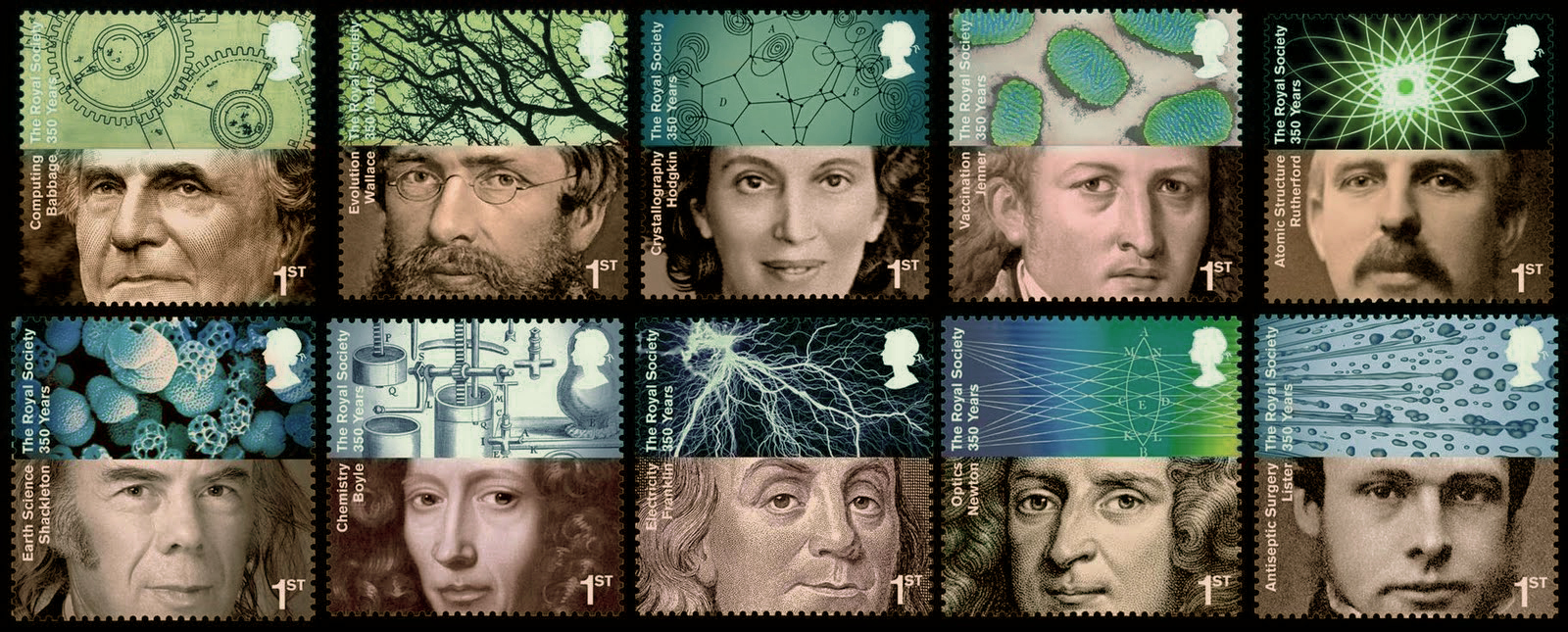Participant Profiles
|
||||
| 305 Education Building, MC-7081310 South Sixth StreetChampaign, IL 61820 | ||||
| Homepage | http://education.illinois.edu/people/fouad | |||
|---|---|---|---|---|
| Fouad Abd-El-Khalick is Professor of Science Education and Head of the Department of Curriculum and Instruction, College of Education, University of Illinois at Urbana-Champaign. He holds a Ph.D. in Science Education, and master’s and BS degrees from the American University of Beirut, Lebanon. His research focuses on the teaching and learning about nature of science in precollege grades, and in preservice and inservice science teacher education settings. He is currently leading a large-scale initiative funded by the US National Science Foundation aimed at preparing a new generation of science teacher leaders by integrating social and entrepreneurial leadership into existing modalities for preparing teacher leaders. He also maintains an active international program of educational research and development in Egypt, Lebanon, and Qatar. Professor Abd-El-Khalick also served as associate editor for the Journal of Research in Science Teaching and School Science and Mathematics Journal, and sits on the editorial boards for the International Journal of Science Education, Science & Education, and Journal of Science Education and Technology. He was recently elected to the rank of Fellow of the prestigious American Association for the Advancement of Science for, according to the Association, “his outstanding research on teachers’ and students’ conceptions of the nature of science that helped provide a foundation for this field of research.” | ||||
| Papers | Teaching With and About NoS, and Science Teacher Knowledge Domains Influence of History of Science Courses on Students’ Views of NOS | |||
| Areas of Interest |
|
|||
Douglas AllchinUniv. of Minnesota allch001 (at) umn.edu |
 |
||
| 2005 Carroll AveSt Paul, MN 55104 | |||
| Homepage | http://douglasallchin.net | ||
|---|---|---|---|
| Douglas Allchin has an M.S. in evolutionary biology (Univ. of Chicago, 1991) and a Ph.D. in history and philosophy of science (Univ. of Chicago, 1991). His research focuses on error and disagreement in science and on episodes in the history of science, primarily from 20th-century biology. Allchin began teaching high school biology in 1981, and has continued to teach biology and help integrate HPSS into science education (History as a Tool in Science Education). He is co-author of the 1996 collection of historical case studies, Doing Biology, and writes a column for American Biology Teacher, Sacred Bovines, now in its 8th year (sacredbovines.net). His numerous articles for science educators have profiled the values and standards of professional philosophers and historians, towards representing the nature of science faithfully (How Not to Teach History in Science; Scientific Myth-Conceptions; Pseudohistory and Pseudoscience; Lawson’s Shoehorn, or Should the Philosophy of Science be Rated ‘X’?; Should the Sociology of Science be Rated ‘X’?; Why Respect for History–and Historical Error–Matter; Evaluating Knowledge of the Nature of (Whole) Science). He continues to assemble historical case studies and simulations (galileotrial.net; pesticides1963.net) and guide teachers in similar work (ships.umn.edu/modules). | |||
| Papers | Teaching NOS through Scientific ErrorsScientific Myth-Conceptions | ||
| Areas of Interest |
|
||
Emily AllenSchool of Education Boston University eallen2 (at) bu.edu |
|||
| Two Silber WayBoston, MA 02215 | |||
| Homepage | |||
|---|---|---|---|
| Emily is a second year doctoral student studying science education at the School of Education, Boston University. Before coming to this program, she earned a master’s degree in Applied Physics at Yale University and taught high school physics and chemistry at The Pomfret School, Pomfret, CT, for several years. Emily is currently working on several research projects here at Boston University that include a closer look at self-report surveys, computer simulation use in introductory college chemistry courses to help teach quantum concepts, and K–12 teacher training courses through science immersion courses. | |||
| Areas of Interest |
|
||
Bob BainUniversity of Michigan bbain (at) umich.edu |
 |
||
| 610 E. University Ave.Ann Arbor, Michigan 48109-1259 | |||
| Homepage | |||
|---|---|---|---|
| Robert (Bob) Bain is Associate Professor at the University of Michigan, Ann Arbor with joint appointments in the Department of History, the Department of Educational Studies, and Museum Studies. He currently is chair of UM’s Secondary Teacher Education Program and is the one of the principal investigators for the design and development team of the Big History Project ( www.bighistoryproject.com). Bob earned his Ph.D. in Social Policy History from Case Western University. Before joining the UM faculty in 1998, heaught high school history and social studies for 26 years, and was a seven-time award winner for excellence in teaching. His research centers on teaching and learning history and the social sciences. Trained as a historian, Bain’s research treats the sites of learning as historical events that require researchers to collect and analyze documents and artifacts, just as historians do. His studies have included investigations of history teaching and learning occurring in schools and museums; the growth of teacher knowledge; the design and use of history-specific technology; and a history of teacher preparation in history and the social studies. | |||
| Papers | “They Thought the World Was Flat?” Applying the Principles of How People Learn in Teaching High School History | ||
| Areas of Interest |
|
||
Christine BaronBoston University, School of Education cbaron24 (at) bu.edu |
 |
||
| 2 Silber WayBoston, MA 02215 | |||
| Homepage | |||
|---|---|---|---|
| Christine Baron is an Assistant Clinical Professor and Program Coordinator for History and Social Studies Education at Boston University’s, School of Education. Dr. Baron is working to establish the Center for History Education at Boston University, a program that uses historic sites as laboratories for teacher preparation. A former high school history teacher and museum educator, immediately prior to her academic post, Dr. Baron directed the development of educational and interpretation programs at the Old North Church, Boston. She received the National Council on Public History’s Award for Excellence in Consulting and the American Association of State and Local History’s Award of Merit for her work at the Old North Church. She received the National Council on the Social Studies Larry Metcalf Exemplary Dissertation Award for her research related to using historic sites to foster historical thinking. | |||
| Papers | Understanding Historical Thinking at Historic Sites | ||
| Areas of Interest |
|
||
Jessica BaronReilly Center for Science, Technology, and Values University of Notre Dame baron.17 (at) nd.edu |
 |
||
| Reilly Center for Science, Technology, and Values448 Geddes HallNotre Dame, IN 46556 | |||
| Homepage | http://jessicabaron.nd.edu | ||
|---|---|---|---|
| Jessica is currently the Outreach and Communications Coordinator for the Reilly Center for Science, Technology, and Values at the University of Notre Dame and the Managing Editor for the journal Studies in History and Philosophy of Science. She is also a member of the History of Science Society’s Committee on Education and its Sub-Committee for Instructional Module.Jessica is currently finishing her PhD dissertation, titled Reforming the Raj: Florence Nightingale’s biomedical liberalism in British India, in the History and Philosophy of Science Program at Notre Dame. From January 2010 – December 2011, Jessica was an adjunct lecturer of history at St. Mary’s College in Notre Dame, IN, where she offered courses on world history (to the Reformation), the history of women in science and medicine, women in the British colonies, and modern European women’s history. In 2005, Jessica taught a Master’s-level course for high school science teachers called Curie, Carson, and Franklin: Women and the Nature of Science. | |||
| Areas of Interest |
|
||
Keith BartonIndiana University kcbarton (at) indiana.edu |
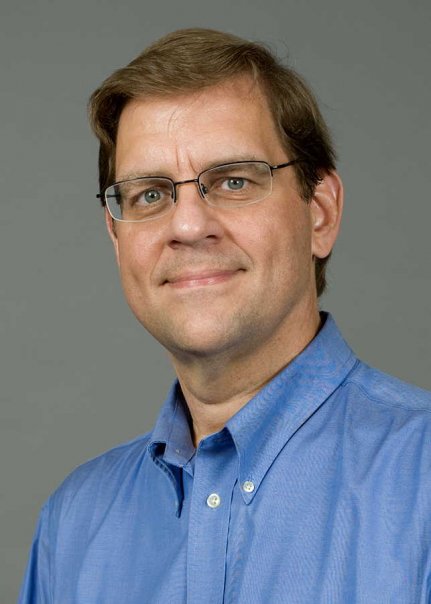 |
||
| Department of Curriculum and InstructionBloomington, IN 47405 | |||
| Homepage | http://portal.education.indiana.edu/ProfilePlaceHolder/tabid/6210/Default.aspx?u=kcbarton | ||
|---|---|---|---|
| Keith C. Barton is Professor of Curriculum and Instruction and Adjunct Professor of History at Indiana University. His research investigates students’ historical understanding, classroom contexts of teaching and learning, the history of the social studies curriculum, and students’ understanding of human rights; this work includes studies in the United States, Ireland, Northern Ireland, New Zealand, and Colombia. He is the author, with Linda S. Levstik, of Doing History: Investigating with Children in Elementary and Middle Schools, Teaching History for the Common Good, and Researching History Education: Theory, Method, and Context. | |||
| Areas of Interest |
|
||
Geoffrey BelknapHarvard University belknap (at) fas.harvard.edu |
|||
| Science Center 3711 Oxford StreetCambridge, MA 02138 | |||
| Homepage | |||
|---|---|---|---|
| Geoffrey is a post doctoral fellow and researcher for the Darwin Correspondence Project at Harvard, located in the History of Science Department. His research interests focuses on the communication of science, and the public uses of correspondence. | |||
| Areas of Interest |
|
||
Yann Benétreau-DupinDept of Philosophy Western University Rotman Institute ybenetre (at) uwo.ca |
 |
||
| Stevenson HallDepartment of Philosophy – Western UniversityLondon, Ontario N6A 5B8Canada | |||
| Homepage | http://www.rotman.uwo.ca/who-we-are/our-members/yann-benetreau-dupin/ | ||
|---|---|---|---|
| A Ph.D. student in philosophy at Western University and the Rotman Institute of Philosophy (Canada), Yann is interested in questions of confirmation, the role of explanation, and the status of laws in physics (cosmology in particular). He has been a teaching and research assistant for the ITOP (Improving the Teaching Of Physics) project at the BU School of Education, integrating HPS content in science teaching for physics teachers’ professional development. He previously worked for a science education organization in France, Planète Sciences, where he developed educative programs and material for inquiry- and project-based astronomy education. He is also an assistant editor for the journal Science & Education. | |||
| Papers | Teaching Teachers the Conceptual History of Physics | ||
| Areas of Interest |
|
||
Alisa BokulichCenter for Philosophy and History of Science Boston University abokulic (at) bu.edu |
 |
||
| Department of Philosophy, Boston University745 Commonwealth Ave.Boston, MA 02215 | |||
| Homepage | http://www.bu.edu/philo/people/faculty/full-time/alisa-bokulich/ | ||
|---|---|---|---|
| Alisa Bokulich received her Ph.D. from the University of Notre Dame’s Program in History and Philosophy of Science in 2001. She is currently an Associate Professor in the Philosophy Department at Boston University. In Fall of 2010, she became the director of B.U.’s Center for Philosophy & History of Science. She is the author of Reexamining the Quantum-Classical Relation: Beyond Reductionism and Pluralism with Cambridge University Press (2008). She has been the recipient of several grants from the National Science Foundation, including most recently a Scholars Award to support her new book project on the role of idealized models in the Earth Sciences. Her teaching at BU includes courses in the philosophy of science; philosophy of physics; gender, race and science; and science, technology, and values. | |||
| Areas of Interest |
|
||
Katherine BradingUniversity of Notre Dame kbrading (at) nd.edu |
 |
||
| Department of Philosophy100 Malloy HallUniversity of Notre Dame, IN Notre Dame | |||
| Homepage | http://www.nd.edu/~kbrading/ | ||
|---|---|---|---|
| Katherine is a philosopher, specializing in philosophy of physics. She works on contemporary physics (including quantum theory and relativity) as well as history of physics. The underlying motivation for all of her work is “What’s the world made of and how does it work?”, with related questions about the kinds of knowledge that physics produces and the methods by which it produces that knowledge. Katherine cares deeply about ownership of science among those of us who are not professional scientists, in partnership with scientists, and about reflectiveness with respect to science in professional scientists. For example, Katherine teaches a class aimed at a general undergraduate audience that explores how we discovered that, despite strong evidence to the contrary, the Earth is not at rest at the center of a spherical cosmos. This course integrates science, scientific methodology, philosophy, and history of science. It makes extensive use of our Digital Visualization Theatre (which can be used as planetarium, but also to do all kinds of three-dimensional representation), through which she has become increasingly interested in the harnessing the power of three-dimensional visual representation in pursuit of pedagogical excellence. Katherine studied for the D.Phil. at Oxford in philosophy of physics, and is currently Director of the History and Philosophy of Science Graduate Program in the Reilly Center for Science, Technology and Values at the University of Notre Dame, where she is also William J. and Dorothy K. O’Neill Collegiate Professor of Philosophy in the Department of Philosophy. | |||
| Areas of Interest |
|
||
Reuven BrandtWestern University rbrandt2 (at) uwo.ca |
 |
||
| Department of Philosophy, Western University (Stevenson Hall 3148)1151 Richmond St.London, Ontario N6A 5B8Canada | |||
| Homepage | http://publish.uwo.ca/~rbrandt2/ | ||
|---|---|---|---|
| Reuven Brandt is a PhD student at Western University and a resident member of the Rotman Institute of Philosophy. His current research focuses on the ethical relationship between gamete (sperm and ova) donors and the children that result from their donated tissue. Reuven’s research seeks to determine the nature of the obligations acquired by gamete donors by virtue of the role they play in creating children, whether these obligations are transferable to others, and how these ethical considerations should influence the policy that governs donor-assisted reproduction. Reuven is currently involved in an outreach project geared at incorporating philosophy | |||
| Areas of Interest |
|
||
John BruerJames S. McDonnell Foundation bruer (at) jsmf.org |
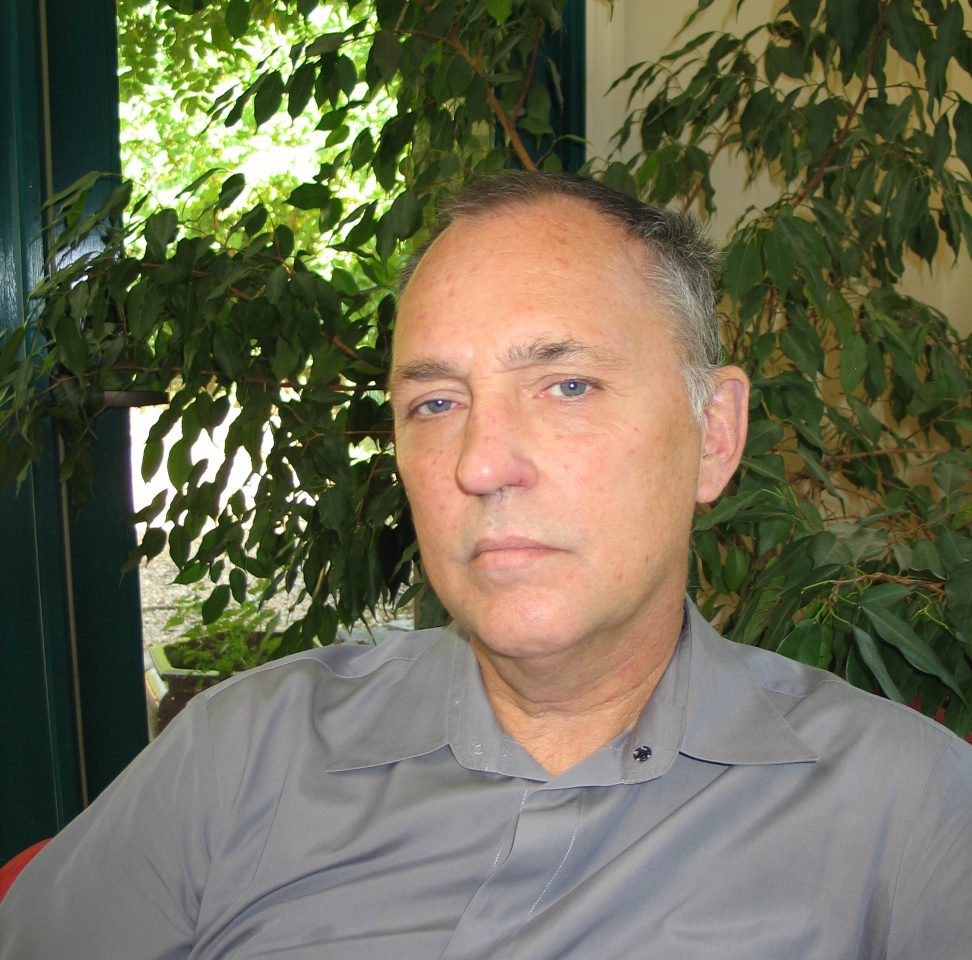 |
||
| 1034 S. Brentwood Blvd.St. Louis, MO 63131 | |||
| Homepage | |||
|---|---|---|---|
| Since 1986, Bruer has been president of the James S. McDonnell Foundation in St. Louis. The foundation awards over $25 million annually. The Foundation has established programs in the areas of neuroscience, cancer research, education, and child health. Since 1999 the McDonnell Foundation has developed a specific program interest in complex systems research. Bruer holds degrees in philosophy from the University of Wisconsin-Madison, Oxford University, and Rockefeller University. Bruer’s book Schools for Thought: A Science of Learning in the Classroom (MIT Press, 1993) received the 1993 Quality in Educational Standards Award and the 1994 Charles S. Grawemeyer Award in Education. His The Myth of the First Three Years (Free Press 1999) received the 2000 Eleanor Maccoby award from the American Psychological Association. He is Adjunct Professor of Philosophy at Washington University and a member of the National Science Board. His current research interests include issues in cognitive neuroscience, causal reasoning, and education |
|||
| Papers | The Myth of the First Three Years (Chapter 1) | ||
| Areas of Interest |
|
||
Jondou ChenTeachers College Columbia University jondouchen (at) gmail.com |
 |
||
| 525 W. 120th St. Box 8New York, NY 10027 | |||
| Homepage | |||
|---|---|---|---|
| Jondou Chen is a postdoctoral researcher at Teachers College, Columbia University and serves as project manager for the NSF-funded Developing Students’ Growth Mindset to Promote Science Learning project under Dr. Xiaodong Lin at Teachers College and Dr. Carol Dweck at Stanford University. Dr. Chen’s past research has investigated links between poverty, neighborhood violence, education policy, and housing mobility projects. Dr. Chen has also served as a high school social studies and math teacher and directed a number of community service/outreach programs. | |||
| Areas of Interest |
|
||
Jeanne ChowningNorthwest Association for Biomedical Research jchowning (at) nwabr.org |
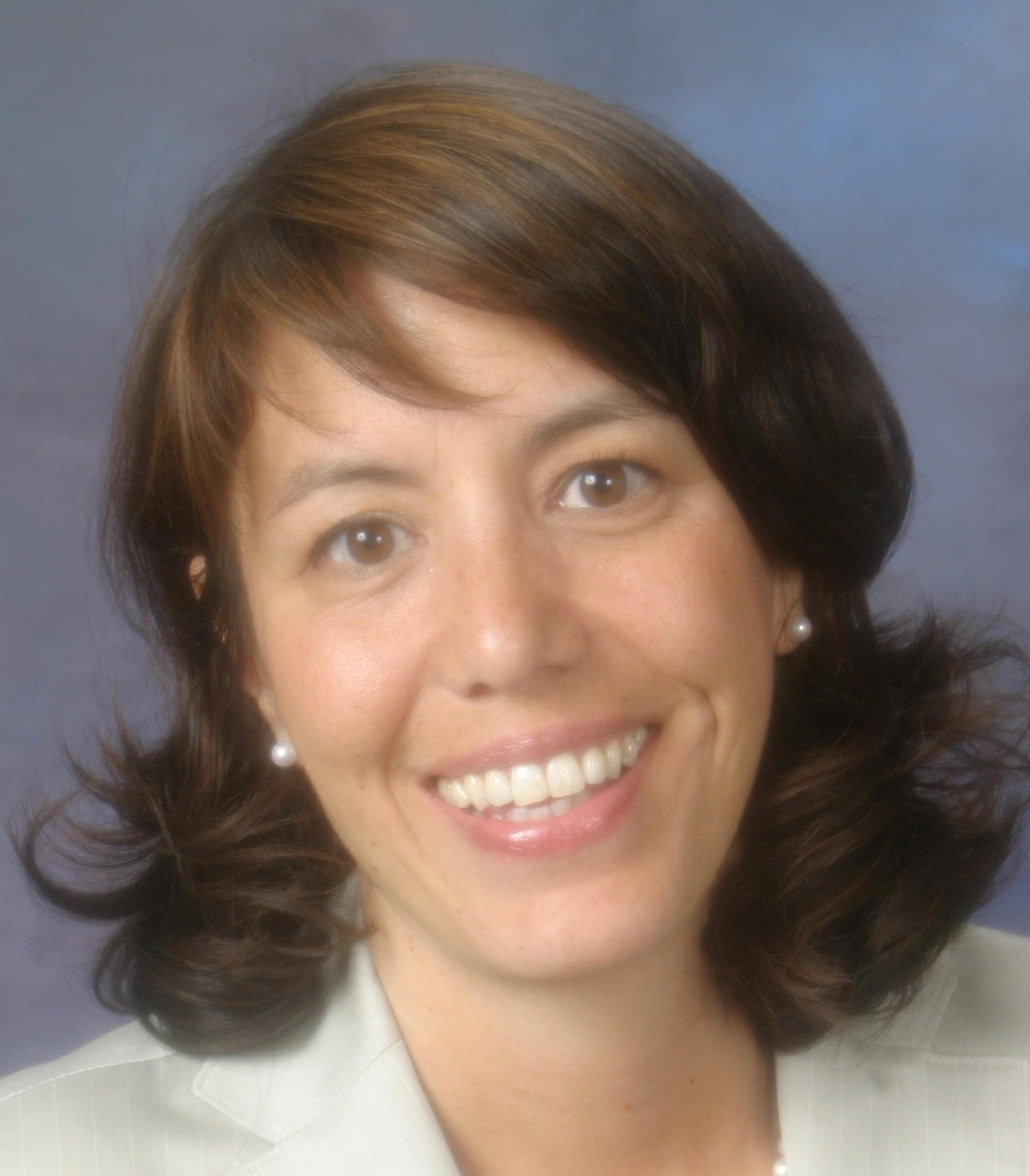 |
||
| 100 W Harrison N430Seattle, WA 98119 | |||
| Homepage | http://www.nwabr.org | ||
|---|---|---|---|
| Jeanne Chowning, serves as the Director of Education for the nonprofit Northwest Association for Biomedical Research (NWABR). For nearly 20 years, Jeanne has directed her professional efforts towards improving pre-college science education and promoting a greater understanding of biomedicine and bioethics among teachers and their students. Jeanne leads several federal science education grants focused on the impacts of science on society, and on preparing young people for the future. Collaborations to Understand Research and Ethics, a Science Education Partnership Award (NIH) engages high school teachers and students in biomedical research ethics. Bio-ITEST (NSF) explores bioinformatics in the context of genetic testing and research. She has led the development of numerous curricular resources focused on topics such as embryonic stem cell research and helped author Exploring Bioethics for the NIH Office of Science Education. Jeanne earned a B.A. in Biology from Cornell University, a B.F.A. from the San Francisco Art Institute, and an M.S. in Biology Education at the University of Washington, where she is currently pursuing a Ph.D. in Learning Sciences. | |||
| Papers | Why Societal Issues Belong in Science Class; and Socratic Seminars in Science ClassFostering Critical Thinking, Reasoning, and Argumentation Skills through Bioethics Education | ||
| Areas of Interest |
|
||
Carol ClelandDepartment of Philosophy University of Colorado Carol.Cleland (at) colorado.edu |
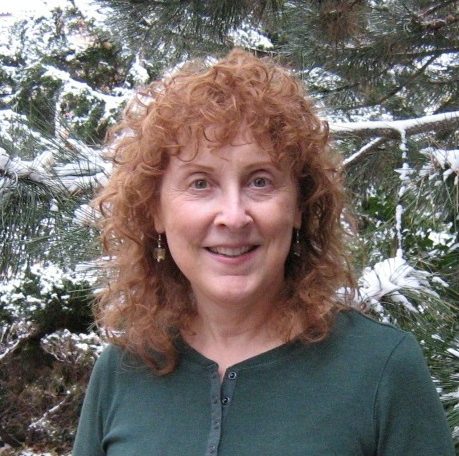 |
||
| Campus Box 232Boulder, Colorado 80309 | |||
| Homepage | http://spot.colorado.edu/%7Ecleland/index.html | ||
|---|---|---|---|
| Carol Cleland, University of Colorado (CU) Boulder. Dr. Cleland is Professor of Philosophy at the University of Colorado. She arrived at CU Boulder in 1986, after having spent a year on a postdoctoral fellowship at Stanford University’s Center for the Study of Language and Information (CSLI). She received her Ph.D. in philosophy from Brown University in 1981 and her B.A. in mathematics from the University of California (Santa Barbara) in 1973. From 1998-2008 she was a member of NASA’s Institute for Astrobiology (NAI). Professor Cleland specializes in Philosophy of Science, Philosophy of Logic, and Metaphysics. Her current research interests are in the areas of scientific methodology, historical science, biology (especially microbiology, origins of life, the nature of life, and astrobiology), and the theory of computation. Cleland’s published work has appeared in leading philosophy and science journals. She is co-editor (with Mark Bedau) of The Nature of Life: Classical and Contemporary Perspectives from Philosophy and Science (Cambridge University Press, 2010) and is currently finishing a book (The Quest for a Universal Theory of Life; Searching for life as we don’t know it), which is under contract with Cambridge University Press. | |||
| Papers | Historical science, experimental science, and the scientific method | ||
| Areas of Interest |
|
||
John ClementU. of Massachusetts, Amherst clement (at) educ.umass.edu |
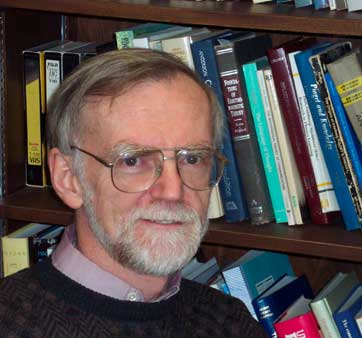 |
||
| Scientific Reasoning Research InstituteLederle GRT 434, U. of Mass.Amherst, MA 01003 | |||
| Homepage | http://people.umass.edu/clement/ | ||
|---|---|---|---|
| John Clement is Professor Emeritus in the Scientific Reasoning Research Institute and the School of Education at the University of Massachusetts, Amherst. His earliest research focused on students’ learning difficulties in science and was aimed at convincing science educators that many students retain certain preconceptions that are largely unaffected by traditional instruction. In his current research: (1) he is studying nonformal reasoning methods used by scientifically trained experts to construct new mental models; (2) he is currently PI of an NSF project to document strategies science teachers use to promote productive classroom discussions. He has recently authored the book: Clement, J., (2009). Creative model construction in scientists and students: The role of imagery, analogy, and mental simulation, second edition. Dordrecht: Springer. This monograph presents a theory of imagery based conceptual learning and creativity in science that was developed from a data base of protocols from scientists thinking aloud about explanation problems. | |||
| Papers | The Role of Imagistic Simulation in Scientific Thought ExperimentsDocumenting the Use of Expert Scientific Reasoning Processes by High School Physics Students | ||
| Areas of Interest |
|
||
Michael CloughSchool of Education Iowa State University mclough (at) iastate.edu |
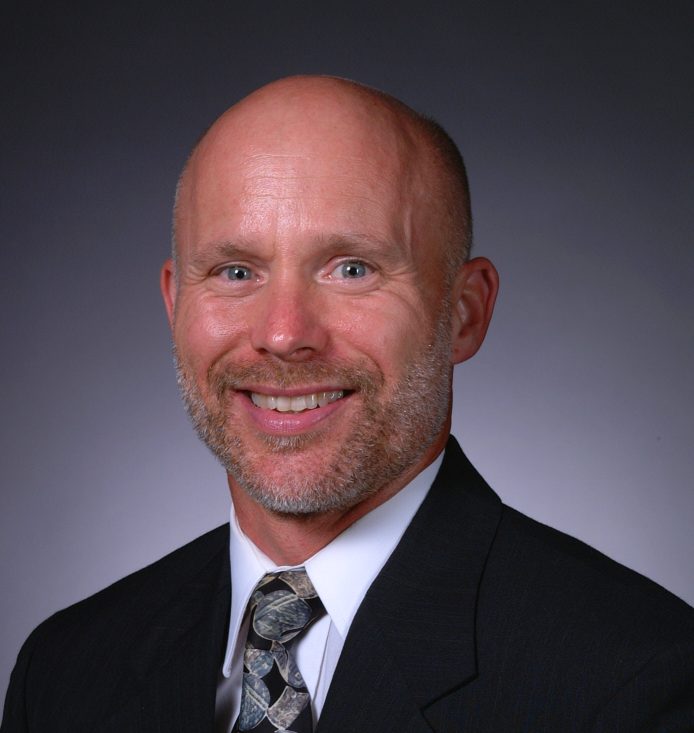 |
||
| N162C Lagomarcino HallAmes, Iowa 50011-3198 | |||
| Homepage | |||
|---|---|---|---|
| Michael P. Clough is an associate professor of science education at Iowa State University where he teaches The Nature of Science and Science Education, Secondary Science Methods I, Secondary Science Methods II, and Restructuring Science Activities. He is the recipient of several awards for his teaching (at both the university and secondary school level), scholarship and service. His scholarship is directed at the nature of science and its implications for science learning, teaching, and teacher education; and the synthesis, criticism, and clarification of extant knowledge and research in science education. He currently serves as president of the International History, Philosophy and Science Teaching (IHPST) organization. | |||
| Papers | The Story Behind the Science: Bringing Science and Scientists to Life in Post-Secondary Science EducationLearners’ Responses to the Demands of Conceptual Change: Considerations for Effective Nature of Science Instruction | ||
| Areas of Interest |
|
||
Ricardo CoelhoFaculty of Sciences University of Lisbon rlc (at) fc.ul.pt |
 |
||
| Faculty of Sciences of the University of LisbonCampo Grande C4.3.22Lisbon, N/A 1749-016Portugal | |||
| Homepage | |||
|---|---|---|---|
| Ricardo Lopes Coelho is an assistant professor of History and Philosophy of Science at the Faculty of Sciences of the University of Lisbon, Portugal, since 1997, and a “Privatdozent” at the Technical University of Berlin, Germany, since 2001. In Portugal, he studied piano and composition, philosophy and physics. He did his PhD with a dissertation on Hertz’s Mechanics, 1994 at the Technical University of Berlin and his “Habilitation” in History and Philosophy of Exact Sciences, in 1999, at the same University, with a dissertation on the concept of force from Newton until 1998. He published On the Concept of Force in Mechanics (in German), On the Concept of Energy: history and meaning (in Portuguese), and papers in his field (HPS) in peer-reviewed journals. He was the national coordinator of the HIPST European Project (2008-2010). In 2010-11, he did research at the Boston University Centre for Einstein Studies and the Centre for Philosophy and History of Science. Ricardo has been actively involved in IHPST since 2005. He has published five articles in Science & Education and reviewed three papers in history of physics. | |||
| Papers | Could HPS Improve Problem-Solving? | ||
| Areas of Interest |
|
||
Rainikka CorprewTeachers College Columbia University rc722 (at) columbia.edu |
 |
||
| 525 West 120th St.New York, New York 10027 | |||
| Homepage | |||
|---|---|---|---|
| Rainikka Corprew is a Cognitive Studies in Education Ph.D. student with the Human Development department at Teachers College of Columbia University. Prior to her doctoral studies, she was an Assistant Principal of two public high schools in Bronx, New York. Given her experience as a school administrator, Rainikka’s research goes beyond just looking at the child as the solitary learner, but focuses on the professional development of the educators, as well as the culture of success in the school and community. She is particularly interested in translating the latest cognitive, metacognitive, and conative discoveries of the learning sciences into rigorous, relevant, and robust curricular components and instructional interventions for school-aged youth of urban educational environments. | |||
| Areas of Interest |
|
||
Barbara CrawfordThe University of Georgia barbarac (at) uga.edu |
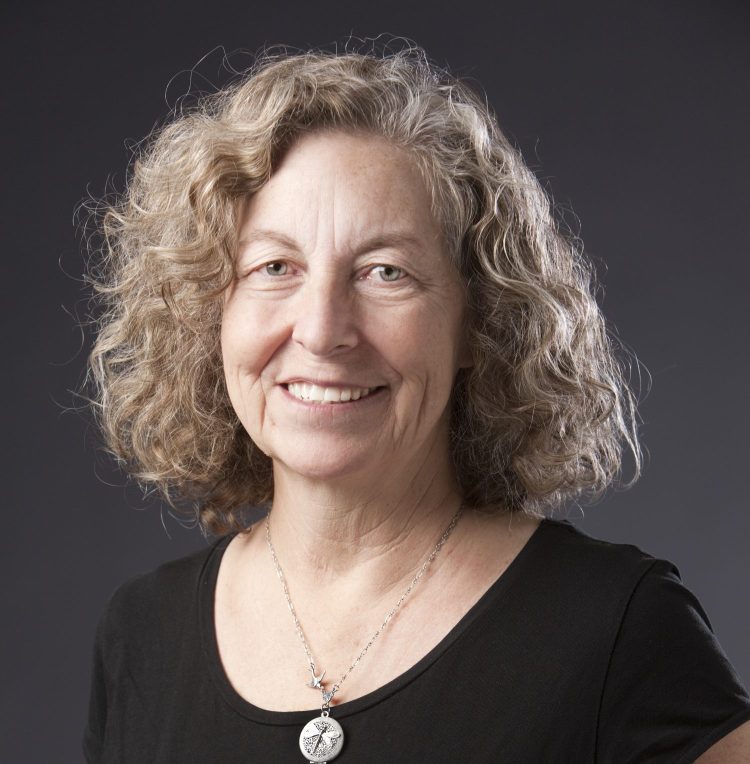 |
||
| The University of Georgia212 C AderholdAthens, GA 30602 | |||
| Homepage | http://www.fossilfinders.org | ||
|---|---|---|---|
| Barbara’s passion is to change the way we teach science in most science classrooms. She earned secondary science teaching certification in the State of Michigan, and taught science (middle and high school biology, chemistry, physics, physical science, life science, and earth science) in public schools for over 16 years. Barbara was recently elected a Fellow of the AAAS. Her previous faculty positions have been at Cornell University, Penn State University, and Oregon State University. The ultimate goal of Barbara’s research is to facilitate the majority of students in science classrooms in developing images of science consistent with current practice, and in understanding what science is, what science is not, and the relevancy of science to society. In order to accomplish this goal, she has focused on researching teachers’ knowledge and beliefs of scientific inquiry and the nature of science. Her belief is that one of the most important issues in science education reform is how to move teachers towards an inquiry orientation. An assumption of this work is that teachers cannot change their current practice of teaching science as a rhetoric of facts to teaching science as inquiry, without have a deep understanding of the nature of scientific inquiry. The recent controversy related to teaching evolution in science classrooms underscores the need to rethink the way we prepare science instructors to assist future citizens in building a robust understanding of the nature of science. Barbara’s research examines viable ways to support prospective and practicing teachers in developing knowledge of nature of science, of scientific inquiry and beliefs that teaching about NOS and scientific inquiry is important. The context for professional development is situating teachers in authentic settings, which include both scientific research settings and alternative experiences using learning technologies. This research is contributing towards developing a research-based model of how to move students of all age levels towards the inner circle of science literacy. | |||
| Papers | Moving the Essence of Inquiry into the Classroom: Engaging Teachers and Students in Authentic ScienceTeaching science as a cultural way of knowing: merging authentic inquiry, nature of science, and multicultural strategies | ||
| Areas of Interest |
|
||
Donald DeRosaBoston University School of Education donder (at) bu.edu |
|||
| 2 Silber WayBoston, MA 02215 | |||
| Homepage | http://www.bumc.bu.edu/citylab | ||
|---|---|---|---|
| A former middle and high school science teacher, Don DeRosa is currently a Clinical Assistant Professor of Science Education at Boston University School of Education, Research Assistant Professor of Biochemistry and Director of CityLab at Boston University School of Medicine. CityLab is a biotechnology-learning laboratory for middle and high school students. Since 1992 he has focused on working with content experts to translate fundamental science concepts, particularly in molecular biology and biomedicine, into engaging and effective curriculum supplements for K-12 students and teachers with an emphasis on evidence-based laboratory investigations. He also teaches a science methods course for pre-service elementary undergraduate and graduate students and is co-author of a science methods textbook entitled Teaching Children Science: A Discovery Approach. | |||
| Areas of Interest |
|
||
Michael DettelbachBoston University mdettelb (at) bu.edu |
|||
| 595 Commonwealth Ave, West Entrance, Suite 700Boston, MA 02215 | |||
| Homepage | |||
|---|---|---|---|
| Michael Dettelbach is currently Director of Foundation Relations at Boston University and in that capacity has worked extensively with K-12 education, science education and natural and medical sciences and engineering groups at the university during his decade there. He was trained as a historian and philosopher of science and technology (research focus in the history of natural history and exploration, 18th/19th centuries) and taught European and Global History at the college level for several years, and he keeps a foot in the scholarly community through contributed papers and book reviews. | |||
| Areas of Interest |
|
||
Dan DillDepartment of Physics Boston University (at) |
|||
| , Boston MA | |||
| Homepage | |||
|---|---|---|---|
| Areas of Interest |
|
||
Andrew DuffyDepartment of Physics Boston University aduffy (at) bu.edu |
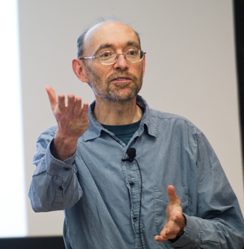 |
||
| 590 Commonwealth Ave.Boston, MA 02215 | |||
| Homepage | |||
|---|---|---|---|
| Andrew has taught introductory physics for over 15 years, and has also taught a set of courses for high school physics teachers that incorporate history and philosophy.[Andrew Duffy was awarded the Metcalf Cup and Prize (the highest award for excellence in teaching at Boston University) in Spring 2012. More information can be found in the BU Today article describing the award and Andrew’s work. – added by the organizing committee] |
|||
| Papers | Teaching Teachers the Conceptual History of Physics | ||
| Areas of Interest |
|
||
Richard DuschlNational Science Foundation Penn State rad19 (at) psu.edu |
 |
||
| 217 ChambersUniversity Park, PA 16802 | |||
| Homepage | |||
|---|---|---|---|
| Richard A. Duschl, (Ph.D. 1983 University of Maryland, College Park) is Waterbury Chaired professor of secondary education College of Education, Penn State University. Prior to joining Penn State Richard held the Chair of Science Education at King’s College London and was professor of science education Graduate School of Education, Rutgers University and executive member of the Rutgers Center for Cognitive Studies. He recently served as Chair of the National Research Council research synthesis report Taking Science to School: Learning and Teaching Science in Grades K-8 (National Academies Press, 2007). While at Kings College London Richard was Co-PI the Center for Informal Learning and Schools, one of the NSF Centers for Teaching and Learning. His research focuses on establishing epistemic learning environments and on the role of students’ inquiry and argumentation processes. Richard has twice received the ‘JRST Award’ (1989; 2003) for the outstanding research article published in the Journal of Research in Science Teaching. He also served for more than a decade as editor of the research journal Science Education and editor for TC Press “Ways of Knowing in Science and Math” book series. In November 2012 Richard joined NSF as Director, Division of Research on Learning. |
|||
| Papers | Two Views About Explicitly Teaching Nature of Science | ||
| Areas of Interest |
|
||
Eugenia EtkinaRutgers University Graduate School of Education eugenia.etkina (at) gse.rutgers.edu |
 |
||
| 10 Seminary PlaceNew Brunswick, New Jersey 08901 | |||
| Homepage | http://paer.rutgers.edu/pt3 | ||
|---|---|---|---|
| Eugenia Etkina is a professor of Physics Education at Rutgers University | |||
| Areas of Interest |
|
||
Russell FauxDSRA russell (at) davissquare.net |
|||
| 119 College Avenue, #41Somerville, MA | |||
| Homepage | http://davissquare.net | ||
|---|---|---|---|
| Russell Faux, Ed.D. studied philosophy at the Universities of Chicago and Wisconsin before turning to education and completing his doctorate at Boston University. He taught language and literature for six years at the University of Padua in Italy. After a year as a Spencer Scholar at Stanford University (Lee Shulman, advisor), Dr. Faux returned to Italy as a research consultant for Bolt, Beranek, and Newman. Dr. Faux held senior research positions at TERC and Riverdeep Interactive (perhaps best known for the Carmen Sandiego software) before starting educational evaluation firm Davis Square Research Associates in 2001. He has studied with advanced social network analysis with Steve Borgatti at the University of Kentucky and holds a graduate faculty appointment in Engineering Education at Purdue University. His work encompasses qualitative and quantitative methods, including grounded theory, instrument development and validation, quantitative modeling, and social network analysis. DSRA clients have included the National Science Foundation, the National Institutes of Health, the University of Maine, Tufts University, the Boston Museum of Science, Boston University, the University of Massachusetts, the U.S. Department of Education, Houghton Mifflin, Verizon, and the Corporation for Public Broadcasting. | |||
| Areas of Interest |
|
||
Patrick ForberDepartment of Philosophy Tufts University patrick.forber (at) tufts.edu |
|||
| 14 Upper Campus Rd.Philosophy, Miner Hall, Tufts UniversityMedford, MA 02155 | |||
| Homepage | http://pforber.squarespace.com/ | ||
|---|---|---|---|
| Patrick Forber spends most his research time thinking and writing about biology and philosophy. He has an interest in understanding confirmation, explanation, and idealization in science, especially in evolutionary biology and ecology. His dissertation, The Traces of Change: Evidence in Evolutionary Biology, attempts to sketch a “big picture” of how testing and evidential reasoning work in these disciplines. Fascinated by the biological world, he spends his free time wandering the mountains, deserts, and oceans from here to Australia.He holds a M.S. in Biological Sciences and a Ph.D. in Philosophy from Stanford University, though a significant amount of dissertation work occurred during the time spent visiting the Philosophy Program in the Research School of Social Sciences at the Australian National University. He also holds a B.S. in General Biology and a B.A. in Philosophy from John Muir College at the University of California, San Diego. | |||
| Areas of Interest |
|
||
Michael FordSchool of Education University of Pittsburgh mjford (at) pitt.edu |
 |
||
| 5525 Posvar HallUniversity of PittsburghPittsburgh, PA 15260 | |||
| Homepage | |||
|---|---|---|---|
| Michael has a PhD in educational psychology, with a focus on design of classroom activities and learning. He is an experienced secondary teacher in both physics and mathematics. His research focuses on forms of active learning in science, in particular activities that are designed to mimic key scientific practices. This research has studied what students learn from engaging in such activities, as well as what teachers need to know to teach these. Results from this research have been published in journals such as Cognition and Instruction, Journal of the Learning Sciences, Science Education, and Cambridge Journal of Education. Dr. Ford serves on the editorial boards of Review of Educational Research and Science & Education. He is currently an editor for the section on learning in Science Education. | |||
| Papers | A Dialogic Account of Sense-Making in Scientific Argumentation and ReasoningDisciplinary Authority and Accountability in Scientific Practice and Learning | ||
| Areas of Interest |
|
||
Jacob FosterMA Department of Education jfoster (at) doe.mass.edu |
|||
| 75 Pleasant StMalden, MA 02148 | |||
| Homepage | |||
|---|---|---|---|
| Jacob Foster is the Director of Science and Technology/Engineering at the Massachusetts Department of Elementary and Secondary Education. In this role he oversees the state’s science and technology/engineering standards and curriculum framework, state-funded professional development opportunities and support for districts. He is active in the implementation of the state’s Race to the Top grant, USED Math and Science Partnership program, and is a member of the Operations Board for the Governor’s STEM Advisory Council. Jacob has been a member of a design team for the National Research Council’s Conceptual Framework for New Science Standards and is on the writing team for the Next Generation Science Standards being facilitated by Achieve, Inc. Previously Jacob has worked with the Coalition of Essential Schools on school reform and first started at the Department conducting school reviews as part of the state accountability system. He has taught various high school physical and earth sciences as well as served as a middle school science coach and science teacher educator. | |||
| Areas of Interest |
|
||
Craig FoxPhilosophy University of Western Ontario cfox49 (at) uwo.ca |
|||
| 486 Platt’s LaneLondon, Ontario N6G 5E4Canada | |||
| Homepage | |||
|---|---|---|---|
| Craig is currently a graduate student in philosophy of Western University (Canada). He completed his MA in Philosophy at Tufts University (May, 2012) and his BS in Chemistry at UCLA (1997). After completing his BS, Craig taught chemistry and biology at a large urban high school in southern California for eight years. While there he worked with both the district and the county office of education to align current chemistry and biology curricula with the state science frameworks. In philosophy, his interests are in philosophy of science, especially Newton’s concept of mass and the foundations of Newtonian space-time, and the nature of evidence and confirmation in geochemistry and geophysics, especially the ongoing effort to understand the emergence of a habitable Earth. | |||
| Areas of Interest |
|
||
Luciana GarbayoUniversity of Texas at El Paso lsgarbayo (at) utep.edu |
|||
| Philosophy Department at University of Texas at El Paso (UTEP)500 University RoadWorrell Hall, Office 102, El Paso TX | |||
| Homepage | |||
|---|---|---|---|
| Luciana is an assistant professor of philosophy at the University of Texas at El Paso. She holds an MD (UFRJ) and a PhD (in Philosophy at BU, under Jaakko Hintikka). Luciana has taught and researched (under Prof. Peter Garik and Prof. Dan Dill) on the the conceptual learning of physics and chemistry, and further, on the introduction of philosophy at large in the teaching and learning of the biological and biomedical sciences, with the introduction of ethics. She is a member of the A-Prime TIME team at the University of Texas System looking for changing the pre-med curriculum, with the use of HPS and critical reasoning tools. |
|||
| Papers | Teaching Teachers the Conceptual History of Physics | ||
| Areas of Interest |
|
||
Peter GarikSchool of Education Boston University garik (at) bu.edu |
|||
| Two Silber WayBoston, MA 02215 | |||
| Homepage | http://quantumconcepts.bu.edu | ||
|---|---|---|---|
| Peter Garik is Clinical Associate Professor of Science Education in the School of Education at Boston University. His doctorate is in theoretical condensed matter physics from Cornell University (1981). Since 1990 he has been engaged in the development of educational materials for high school students and undergraduates; professional development of physics teachers; and, professional development in science of K-8 teachers. For the professional development of physics teachers, I helped develop materials to teach the conceptual history of physics. From this arose my interest in the use of the history and philosophy of science for education, and developing research to measure the impact on teachers’ classroom use of such materials. | |||
| Papers | Teaching Teachers the Conceptual History of Physics | ||
| Areas of Interest |
|
||
Stacey GoguenPhilosophy Department Boston University slgoguen (at) bu.edu |
|||
| , MA | |||
| Homepage | http://bu.academia.edu/StaceyGoguen | ||
|---|---|---|---|
| Ms. Goguen is a graduate student in the philosophy department at Boston University, where she is working towards her PhD. She is also a teaching assistant for BU’s ITOP program. | |||
| Areas of Interest |
|
||
Bennett GoldbergBoston University goldberg (at) bu.edu |
 |
||
| 8 Saint Mary’s St Photonics CenterBoston, MA 02215 | |||
| Homepage | http://ultra.bu.edu/ | ||
|---|---|---|---|
| Bennett B Goldberg is a Professor of Physics, with joint appointments in Biomedical and Electrical and Computer Engineering. He is the founder and director of the Center for Nanoscience and Nanobiotechnology and former chair of the Department of Physics. At the Center, he directs the Boston University Nanomedicine Program. Goldberg received a B.A from Harvard College in 1982, an M.S. and Ph.D. in Physics from Brown University in 1984 and 1987. Following a Bantrell Post-doc at MIT and the Francis Bitter National Magnet Lab, he joined the physics faculty at Boston University in 1989. Goldberg is a Fellow of the American Physical Society, has been awarded a Sloan Foundation Fellowship and is a recipient of the Presidential Young Investigators Award. Current research and training interests include nanomedicine and nano-optics and sensing in semiconducting and biological systems. He has also been active in developing Studio Physics and other educational innovations in Physics | |||
| Areas of Interest |
|
||
Mark GreenmanDepartment of Physics Boston University greenman (at) bu.edu |
 |
||
| 868 Humphrey StreetSwampscott, MA 01907 | |||
| Homepage | http://mhs.marbleheadschools.org/teachers/page/greenman/Prof_Development | ||
|---|---|---|---|
| Mark D. Greenman recently joined the Boston University (BU) physics department as Teacher in Residence for the BU PhysTEC program. Mark is also working with the BU School of Education and physics department supporting the implementation of a new NSF Robert Noyce Teacher Scholarship grant, and through an APS PAIRS grant he is mentoring and coaching physics teachers at English high school a high needs school within the Boston public school system.Mark has recently served for 2-years as an Albert Einstein Distinguished Educator Fellow at the National Science Foundation within the Division of Undergraduate Education (2009-2011). He is a recipient of the Presidential Award for Excellence in Mathematics and Science Teaching, the American Association of Physics Teachers (AAPT) Paul W. Zitzewitz Award for Excellence in Pre-College Physics Teaching, the Massachusetts’ Council for Technology Education Path Finder Award, the Massachusetts Association of Science Teachers (MAST) Teacher of the Year Award from Essex county, an inductee into the Massachusetts Hall of Fame for Science Educators, and profiled in the Salem News “North Shore 100: Local Leaders Making a Difference in Our Future.” | |||
| Areas of Interest |
|
||
Nicholas GrossBoston University gross (at) bu.edu |
 |
||
| 19 Walden St.Cambridge, MA 02140 | |||
| Homepage | |||
|---|---|---|---|
| Nick has been working on science education projects for over a decade. His experience has been in curriculum development and delivery using the latest education and science research. Relevant to this conference, Nick has been involved in the delivery of professional development graduate courses for in-service physics teachers that integrates the physics they need with conceptual history and physics education research. | |||
| Papers | Teaching Teachers the Conceptual History of Physics | ||
| Areas of Interest |
|
||
Tina GrotzerHarvard Graduate School of Education Tina_Grotzer (at) harvard.edu |
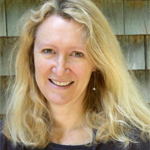 |
||
| Project Zero, 20 University RoadCambridge, MA 02138 | |||
| Homepage | http://www.gse.harvard.edu/directory/faculty/faculty-detail/?fc=562&flt=g&sub=all | ||
|---|---|---|---|
| Tina Grotzer is an associate professor of education at the Harvard Graduate School of Education, a principal investigator at Harvard Project Zero, and a faculty member at the Center for Health and the Global Environment at Harvard School of Public Health. She directs the Understandings of Consequence Research Unit. There are four research strands: 1) How reasoning about causal complexity interacts with our decisions in the everyday world; 2) How causal understanding develops in supported contexts; 3) How causal understanding interacts with science learning (with the goal of developing curriculum to support deep understanding); and 4) the public understanding of science given the nature of science, the nature of causal complexity and the architecture of the human mind. She received a Career Award from NSF in 2009 to enable her to extend this inquiry in new directions and in 2011, she received a Presidential Early Career Award for Scientists and Engineers. Tina is also co-PI with Chris Dede on the EcoMUVE and EcoMOBILE Projects, funded by the Institute of Education Sciences (IES) and NSF, respectively. In July 2012, she published a book entitled, Learning Causality in a Complex World (Rowman Littlefield). | |||
| Papers | Perceptual, Attentional, and Cognitive Heuristics that Interact with the NoS to Complicate Public Understanding of Science | ||
| Areas of Interest |
|
||
Andrew HamiltonUniversity of Houston ahamilton (at) uh.edu |
|||
| 208 E. CullenHouston, TX 77204-2037 | |||
| Homepage | |||
|---|---|---|---|
| Andrew recently moved from the School of Life Sciences at Arizona State to Academic Affairs at the University of Houston. He has been teaching history and nature of science as part of introductory biology courses for several years. How and what to do with this work is now under reconsideration as Andrew collaborates on a ‘flipped’ version of his course that will minimize lecture and emphasize active learning. | |||
| Papers | Rethinking the Lecture: Teaching and Learning at Scale | ||
| Areas of Interest |
|
||
Gerald HoltonHarvard University holton (at) physics.harvard.edu |
 |
||
| Jefferson Physics Laboratory, Harvard University17 Oxford StreetCambridge, MA 02138 | |||
| Homepage | http://www.physics.harvard.edu/people/facpages/holton.html | ||
|---|---|---|---|
| Author and coauthor of publications, including several textbooks, in physical science that introduced the history and aspects of the philosophy of science as vital parts of the educational experience, starting with his text, Introduction to Concepts and Theories in Physical Science (1952, now in edition revised with Stephen Brush). The same structure and sequence of ideas was used for the national curriculum development, the Project Physics Course (now available online), that brought history and philosophy into high schools in the USA and, by adaptations, in many languages in other countries. | |||
| Areas of Interest |
|
||
Dietmar HötteckeUniversity of Hamburg dietmar.hoettecke (at) uni-hamburg.de |
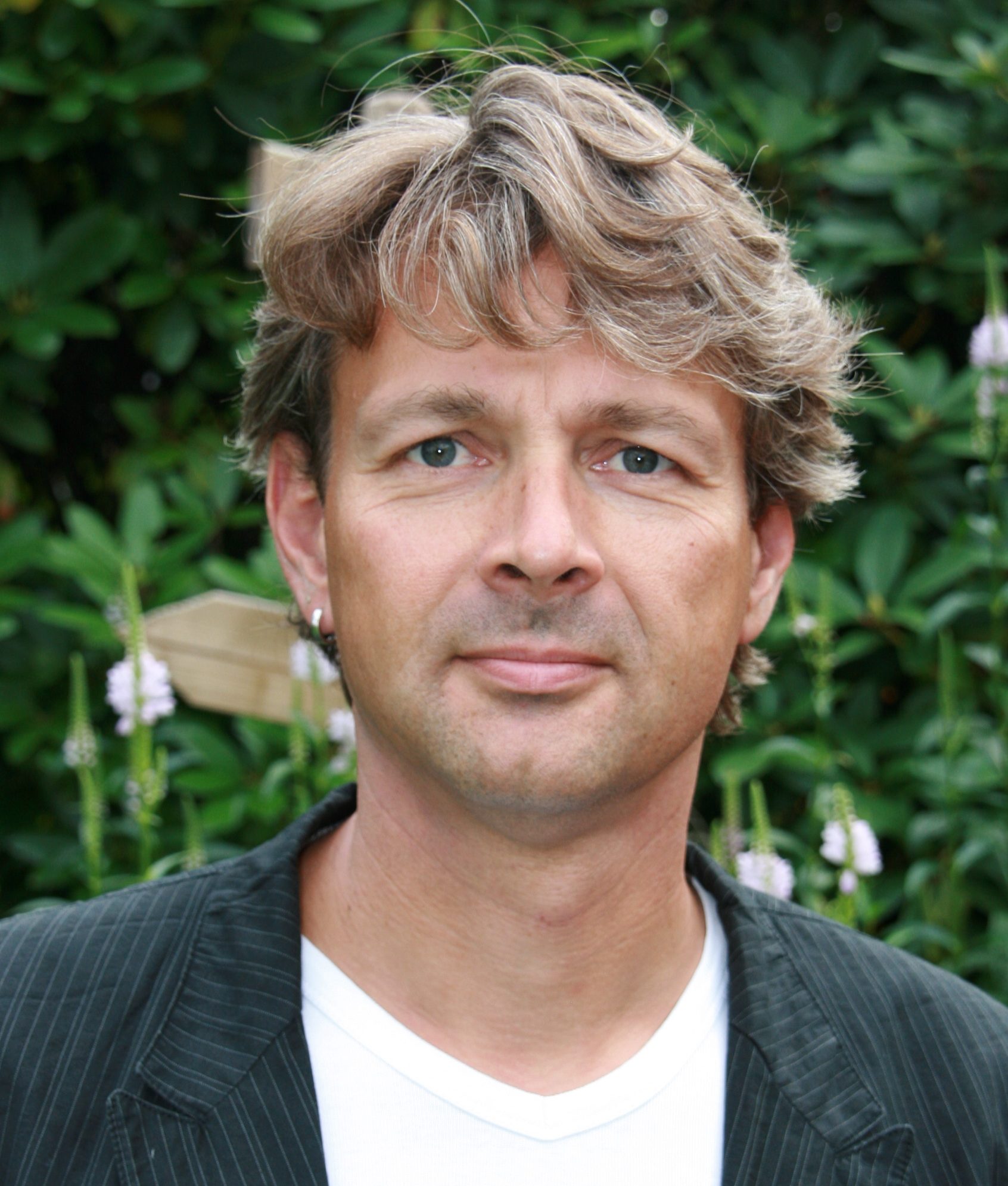 |
||
| Von-Melle-Park 8Faculty EPBHamburg, Hamburg 20146Germany | |||
| Homepage | http://www.nawidid.uni-hamburg.de | ||
|---|---|---|---|
| Dietmar Höttecke is a professor for physics education at the University of Hamburg, Germany. He earned his PhD in physics education and history of physics from the University of Oldenburg in 2001 and is trained as a teacher for physics and German language and literature. | |||
| Papers | Why Implementing History and Philosophy in School Science Education is a Challenge: An Analysis of ObstaclesImplementing History and Philosophy in Science Teaching: Strategies, Methods, Results and Experiences from the European HIPST Project | ||
| Areas of Interest |
|
||
Eric HoweEducation Department Assumption College emhowe (at) assumption.edu |
 |
||
| 500 Salisbury StreetEducation DepartmentWorcester, MA 01609 | |||
| Homepage | |||
|---|---|---|---|
| Eric M. Howe has earned a B.S. in molecular biology from the University of Colorado (1989), an M.B.A. from Indiana University (1992), an M.A.T. in biology from Colgate University (1999), and a Ph.D. in science education from Western Michigan University (2004). His primary interests center developing, teaching, and researching the efficacy of lessons that incorporate the history and philosophy of science with an emphasis on improving students’ nature of science perspectives. | |||
| Papers | Assessing the Impact of a Historically Based Unit on Preservice Teachers Views on NOS | ||
| Areas of Interest |
|
||
Thomas HuntBoston University School of Education tomh (at) bu.edu |
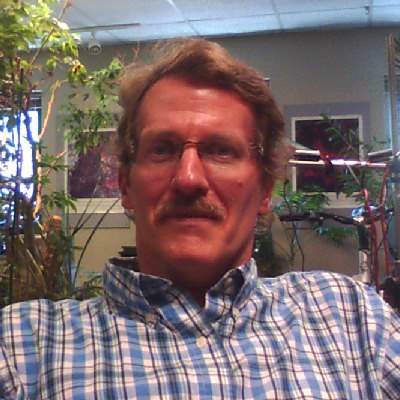 |
||
| Two Silber WayBoston, MA 02215 | |||
| Homepage | |||
|---|---|---|---|
| Tom is a doctoral student in curriculum and teaching, science education. He holds a Sc.M. in engineering from Brown University, and a B.S. in electrical engineering from Worcester Polytechnic Institute. Before embarking on a career change to education, he worked as an engineer on projects ranging from the AIRS package on NASA’s Aqua platform to creating an interface for clothes washers and dryers to be accessed via the internet. Many of his past positions also included creating training programs for new technology for in-house engineers and end customers. | |||
| Areas of Interest |
|
||
Melissa JacquartPhilosophy Dept Rotman Institute University of Western Ontario mjacquar (at) uwo.ca |
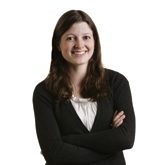 |
||
| Stevenson HallDepartment of Philosophy – Western UniversityLondon, ON N6A 5B8Canada | |||
| Homepage | http://www.melissajacquart.com | ||
|---|---|---|---|
| Melissa Jacquart is currently a PhD student in the philosophy department and in the Rotman Institute of Philosophy at Western University, Canada, where she also received her master’s degree in philosophy. Before attending Western University, she worked as a science assistant for the National Science Foundation (NSF) for the Science, Technology, and Society (STS) program, the Methodology, Measurement, and Statistics (MMS) program, and the Ethics Education in Science and Engineering (EESE) program. She received her bachelor’s degree from the University of Wisconsin-Madison, majoring in astronomy, philosophy, and physics. Her research interests are in philosophy of science, particularly the philosophy of physics and cosmology, ethics & values in science, and philosophy education. | |||
| Areas of Interest |
|
||
Manher JariwalaDept. of Physics Boston University manher (at) bu.edu |
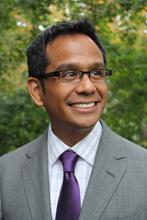 |
||
| 590 Commonwealth AvenueDepartment of PhysicsBoston, MA 02215 | |||
| Homepage | |||
|---|---|---|---|
| . | |||
| Areas of Interest |
|
||
Kim KastensLearning & Teaching Division EDC kkastens (at) edc.org |
|||
| 43 Foundry AveWaltham, MA 02453 | |||
| Homepage | |||
|---|---|---|---|
| Kim Kastens leads the science education efforts in the Science & Math Programs of EDC’s Learning & Teaching Division. Before coming to EDC, she spent 31 years as a researcher and professor at the Lamont-Doherty Earth Observatory of Columbia University. Her training and early career were in marine geology, focusing on the geological evolution of the Mediterranean region, and the structure and tectonics of transform faults. Beginning in the mid-1990’s, Kastens shifted her focus towards improving the public’s understanding of the Earth and environment, through training of environmental journalists, development of instructional materials, professional development for teachers, innovative use of information technology, and science of learning research. Her educational efforts have included the developing the Where are We? software to help children learn to read maps, developing Data Puzzles to foster use of authentic geoscience data in high schools, and designing a series of professional development workshops to enhance the spatial thinking of high school Earth Science teachers and students. Her research on learning projects have investigated how children use maps while navigating, how climate forecast maps and bathymetric maps are understood by their target audiences, how high school Earth Science students learn from physical models, and how people visualize a three-dimensional geological structure from the limited information available from outcrops. She recently lead a multidisciplinary effort to create a “Synthesis of Research on Thinking & Learning in the Geosciences,” published as a Special Publication of the Geological Society of America. Kastens holds a bachelor’s degree in Geology & Geophysics from Yale University, and a PhD in Oceanography from Scripps Institution of Oceanography, University of California at San Diego. | |||
| Papers | How Geoscientists Think and Learn | ||
| Areas of Interest |
|
||
Frank KeilPsychology Yale University frank.keil (at) yale.edu |
|||
| 2 Hillhouse Ave.Yale UniversityNew Haven, CT 06520 | |||
| Homepage | http://cogdevlab.sites.yale.edu | ||
|---|---|---|---|
| Frank Keil is the Charles C. and Dorathea S. Dilley Professor of Psychology Psychology and Linguistics at Yale University. He received a B.S. degree in Biology from MIT (1973), a M.A. in Psychology from Stanford (1975), and a Ph.D. in Psychology from the University of Pennsylvania(1977). His current research focuses on how children and adults construe the world as being organized into theory-like domains even as their explicit knowledge of such theories is highly skeletal and fragmentary. This focus leads to more specific questions about illusions of explanatory understanding, the nature of conceptual change, ways of evaluating experts and expertise, and notions of the division of cognitive labor. | |||
| Papers | The Feasbility of Folk Science | ||
| Areas of Interest |
|
||
Anthony E KellyGeorge Mason University akelly1 (at) gmu.edu |
 |
||
| George Mason University4400 University DrFairfax, VA 22030 | |||
| Homepage | http://cehd.gmu.edu/people/faculty/akelly1/ | ||
|---|---|---|---|
| Stanford PhD in educational psychology with a minor in psychology. Assistant to associate professor at Rutgers University. Program officer rotation at NSF (1997-2000), while at Rutgers. Full Professor at George Mason University 2000 – present. Program officer at NSF 2005-2006. Fulbright Scholar 2009-2010. Rotation to US Department of Education, Spring 2012. | |||
| Areas of Interest |
|
||
Gregory KellyPenn State University gkelly (at) psu.edu |
 |
||
| 241 Chambers BuildingCollege of EducationUniversity Park, PA 16802 | |||
| Homepage | http://www.ed.psu.edu/education/default.asp?which=465 | ||
|---|---|---|---|
| Greg Kelly is Associate Dean for Research, Outreach, and Technology in the College of Education at Penn State University. He was a physics and mathematics teacher and served for four years as a Peace Corps Volunteer in Togo. His research explores issues of knowledge and discourse in science education settings. Recent studies have examined uses of argumentation analysis for assessing evidence and consideration of epistemic practices in science learning. He serves as the past Editor for the journal Science Education. Greg teaches courses on teaching and learning science in secondary schools and uses of history, philosophy, sociology of science in science education. | |||
| Papers | Inquiry teaching and learning: Philosophical considerations | ||
| Areas of Interest |
|
||
David KlahrDept of Psychology Carnegie-Mellon klahr (at) cmu.edu |
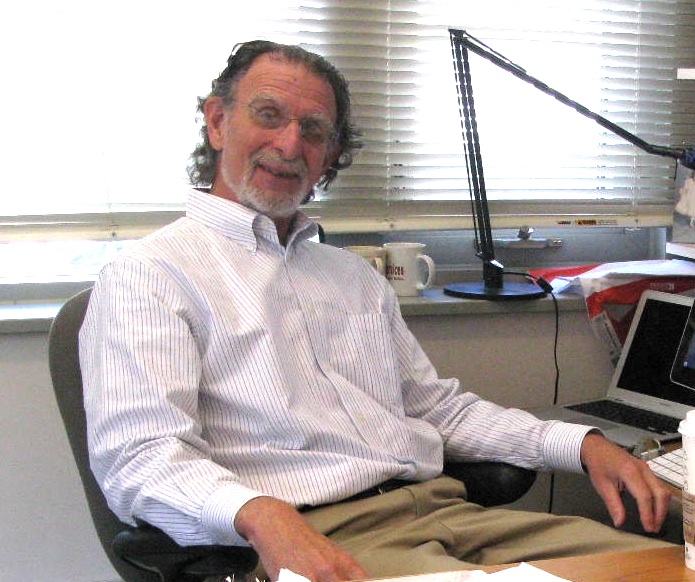 |
||
| 1212 Heberton StreetPittsburgh, PA 152061 | |||
| Homepage | http://www.psy.cmu.edu/~klahr | ||
|---|---|---|---|
| David Klahr is the Walter van Dyke Bingham Professor of Cognitive Development and Education Sciences at Carnegie Mellon University, Director of CMU’s Program in Interdisciplinary Education Research, and the Education Director of the Pittsburgh Science of Learning Center. He received his undergraduate degree is in Electrical Engineering (MIT ’60) and his Ph.D is from CMU’s Graduate School of Industrial Administration in Organizations and Social Behavior. His current research focuses on the thinking processes that support children’s understanding of the fundamental principles underlying scientific thinking. The specific question he has been addressing recently is the extent to which children learn more from highly directed, carefully scripted, instruction about scientific procedures, compared to more open-ended “discovery” methods of science instruction. As part of this project, he has been developing a computer-based “intelligent tutor” to teach children about the basics of experimental design. He has published over 100 journal articles and several books on children’s thinking, problem solving, scientific reasoning and the relation between cognition and instruction. In recent years he has served on three different committees of the National Academy of Science: the Committee on the Foundations of Assessment, the Committee on Research in Education, and the Committee on Science Learning, Kindergarten through Eighth Grade. In 2007 he was elected to the National Academy of Education. | |||
| Areas of Interest |
|
||
Meredith KnightSchool of Education Boston University mtknight (at) bu.edu |
 |
||
| Two Silber WayBoston, MA 02215 | |||
| Homepage | |||
|---|---|---|---|
| Ms. Knight has a bachelors in chemistry from Cornell University (1996), a masters from Tufts University in science education (2005) and is currently a doctoral student at Boston University’s School of Education. She has twelve years of experience in program evaluation, program management, and designing and implementing education outreach programs. Her main research focus is determining the effectiveness of active learning strategies in college level science courses with attention to measurable outcomes such as grades. She is also actively investigating the impact of early scientific research experiences and research-based courses on college science majors. Additionally, she has an interest in research methodology, specifically, optimizing the design of self-report surveys and interviews based on the broad foundation of existing knowledge and research in those areas. | |||
| Areas of Interest |
|
||
Elizabeth Lillis LoveMilton Academy Elizabeth_Lillis (at) milton.edu |
|||
| Milton Academy170 Centre StreetMilton, MA 02186 | |||
| Homepage | |||
|---|---|---|---|
| Elizabeth has been teaching high school Biology for 13 years, at different levels and in various schools in MA and MD. She also taught a range of life science electives in that time. For several years she has been teaching a senior-junior course that integrates current issues in science and ethical and social dilemmas related to these topics, with the aim of increasing scientific literacy and creating more informed citizens. Elizabeth enjoys the disciplinary nature of this course and the enthusiasm with which students engage in debate. | |||
| Areas of Interest |
|
||
Xiaodong Lin-SieglerTeachers College Columbia University xlin (at) tc.columbia.edu |
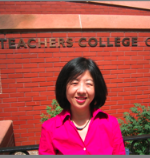 |
||
| 525 West 120th St.New York, NY 10027 | |||
| Homepage | http://www.tc.columbia.edu/news.htm?articleID=8674 | ||
|---|---|---|---|
| Xiaodong Lin-Siegler is a faculty member at Teachers College, Columbia University. Her research explores how different types of social and cultural knowledge influence students’ problem solving and motivation to learn STEM. These questions place her research at the interface of culture, cognition, motivation, and technology. For instance, she has examined how students’ understanding of other people, cultures, and the requirements of success can impact their motivation to learn STEM (Hong & Lin-Siegler, 2011; Lin & Bransford, 2010; Lin, Siegler & Sullivan, 2010). Rather than trying to increase students’ motivation by improving the appeal of instructional activities or other external features of the learning environment, she tries to increase students’ intrinsic motivation to learn STEM by changing their interpretation of classroom cultural norms and their places in the classroom. Her work shows that altering students’ understanding of school goals and what it takes to succeed in STEM career leads to cascading improvements in motivation and performance. She has received a number of awards during her academic career, including Carnegie Scholar; American Educational Research Association Early Career Award and AERA outstanding research award. In collaboration with Dr. Carol Dweck (Stanford University), Xiaodong has just received a large empirical NSF REESE grant to study how understanding the history of scientists motivate students’ STEM learning. See the web site: http://www.tc.columbia.edu/news.htm?articleID=8674 | |||
| Papers | How Learning About Scientists’ Struggles Influences Students’ Interest and Learning in Physics | ||
| Areas of Interest |
|
||
Carol LundMasconomet Regional High School clund (at) masconomet.org |
|||
| 20 Endicott RoadTopsfield, Massachusetts 01983 | |||
| Homepage | https://sites.google.com/site/mslundschemistrypage/ | ||
|---|---|---|---|
| Carol is a high school science teacher with eighteen years of experience. She has taught all levels of chemistry including AP Chemistry and was inducted into the Aula Laudis Society for Excellence in Chemistry Teaching by the American Chemical Society in 2011. She earned her B.S. and M.S. from U.C.L.A., her J.D. from the University of Southern California, and her M.Ed. from Harvard University. | |||
| Areas of Interest |
|
||
Gregory MacklemHistory of Science Society University of Notre Dame greg (at) hssonline.org |
|||
| 440 Geddes HallNotre Dame, IN 46556 | |||
| Homepage | |||
|---|---|---|---|
| Gregory L. Macklem is the Society Coordinator for the History of Science Society and a graduate student in the Program in the History and Philosophy of Science at the University of Notre Dame. His research interests include the history of mathematics and science education and the utilization of history and philosophy of science to enhance and improve K-12 science education. He has also spent nine years in the high school classroom, teaching mathematics and science. He is a former Lilly Teacher Creativity Fellow and Milken National Educator Award recipient. | |||
| Areas of Interest |
|
||
Michael MarderUT Austin marder (at) mail.utexas.edu |
 |
||
| PAI 4.021 University StationAustin, TX 78712 | |||
| Homepage | http://uteach.org | ||
|---|---|---|---|
| Michael Marder is a physicist who specializes in the mechanics of solids, particularly the fracture of brittle materials. He has recently developed numerical methods allowing fracture computations on the atomic scale to be compared directly with laboratory experiments on a macroscopic scale. . He has published a graduate textbook on condensed matter physics which is now in its second edition, and an undergraduate textbook on research methods for science. As Associate Dean for Science and Mathematics Education in the College of Natural Sciences, Michael Marder is co-founder and co-director of UTeach, the University program for preparation of secondary math and science teachers, is working to introduce inquiry techniques into undergraduate teaching, and directs programs aimed at improving science education in Austin elementary schools. | |||
| Areas of Interest |
|
||
Michael MatthewsSchool of Education University of New South Wales m.matthews (at) unsw.edu.au |
 |
||
| School of EducationUniversity of New South WalesSydney, NSW 2052Australia | |||
| Homepage | |||
|---|---|---|---|
| Michael R. Matthews is an associate professor in the School of Education at the University of New South Wales. He has degrees in Geology, Psychology, Philosophy, History and Philosophy of Science, and Education. His PhD in philosophy of education is from UNSW.He is Foundation and continuing editor of the journal Science & Education: Contributions from the History and Philosophy of Science.His books include The Marxist Theory of Schooling: A Study of Epistemology and Education (Humanities Press 1980); Science Teaching: The Role of History and Philosophy of Science (Routledge 1994); Challenging New Zealand Science Education (Dunmore Press 1995); and Time for Science Education: How Teaching the History and Philosophy of Pendulum Motion can Improve Science Literacy (Plenum Publishers 2000).His edited books include The Scientific Background to Modern Philosophy (Hackett 1989); History, Philosophy and Science Teaching: Selected Readings (Teachers College Press 1991); Constructivism in Science Education: A Philosophical Examination (Kluwer Academic Publishers 1998); Science Education and Culture (Kluwer Academic Publishers 2001, with F. Bevilacqua and E. Giannetto); and The Pendulum: Scientific, Historical, Philosophical and Educational Perspectives (Springer 2005, with A. Stinner and C.F. Gauld); Science, Worldviews and Education (Springer 2009). He is currently editing the two-volume 80-chapter Springer Handbook of Historical and Philosophical Research in Science Education which will be published in 2013. | |||
| Papers | Changing the Focus: From Nature of Science to Features of Science | ||
| Areas of Interest |
|
||
Katherine McNeillBoston College kmcneill (at) bc.edu |
 |
||
| Boston College, Campion Hall, Room 122140 Commonwealth AvenueChestnut Hill, MA 02467 | |||
| Homepage | http://www.katherinelmcneill.com/ | ||
|---|---|---|---|
| Katherine L. McNeill is an Associate Professor of science education at Boston College. A former middle school science teacher, she received her doctorate in science education from the University of Michigan. Her research focuses on two overlapping areas: 1. Scientific explanations and arguments; and 2. Science curriculum design and implementation. Through the generous funding of the National Science Foundation (NSF) and the Carnegie Corporation of NY, she has worked on a number of projects focused on the design of middle school and high school science curriculum developed to support scientific inquiry practices. Currently, she is working with colleagues at the Lawrence Hall of Science to design and research a digital middle school science curriculum that provides teachers with multimedia educative supports for argumentation. | |||
| Areas of Interest |
|
||
David MeltzerArizona State University david.meltzer (at) asu.edu |
 |
||
| Arizona State University7271 E. Sonoran Arroyo MallMesa, Arizona 85212 | |||
| Homepage | http://www.physicseducation.net/ | ||
|---|---|---|---|
| David E. Meltzer received a Ph.D. in theoretical condensed matter physics from SUNY Stony Brook in 1985, and went on to complete six years of post-doctoral work at the University of Tennessee and the University of Florida. He then joined the faculty at Southeastern Louisiana University in Hammond and turned his focus to physics education research, moving to Iowa State University in 1998. From 1998 to 2005 he was the director of the Iowa State University Physics Education Research Group. He later taught at the University of Washington in Seattle, and joined the faculty at Arizona State University in 2008. He has also regularly taught middle-school science classes since 2007. Since 1992 his primary work has been in physics education research and curriculum development. He is a consultant to the American Physical Society and the Physics Teacher Education Coalition (PhysTEC), and Senior Consultant to the National Task Force on Teacher Education in Physics. | |||
| Papers | Active-Learning Instruction in Physics | ||
| Areas of Interest |
|
||
David MeshoulamSchool of Education University of Wisconsin-Madison meshoulam (at) wisc.edu |
 |
||
| 49 Oliver StreetWatertown, MA 02472 | |||
| Homepage | |||
|---|---|---|---|
| David Meshoulam is a doctoral student at the University of Wisconsin-Madison in the department of Curriculum & Instruction. His research focuses on the use of history of science as a tool to teach K-12 science. Specifically, his dissertation traces the history of Harvard Project Physics, a NSF- and OE-sponsored high-school physics curriculum developed in the 1960s. The history of HPP reveals the conflicting epistemological and professional commitments that undergirded science education reforms of the era. His is also teaching physics at Newton North High School in Newton, MA. | |||
| Areas of Interest |
|
||
Meghan MoriartyBoston University megmor (at) bu.edu |
|||
| 2 Silber WayBoston, MA 02215 | |||
| Homepage | |||
|---|---|---|---|
| Ms. Moriarty has a bachelors from Brown University (1999), a masters from Boston University in science education (2005) and is currently a doctoral student at Boston University’s School of Education. Her interests include assessing the use of informal and out of school science learning experiences with attention to teachers’ and students’ understanding of the nature of science. Currently, she is investigating the role of scientific research experiences and research-based careers on science teachers’ understanding of the nature of science and teaching the nature of science. While completing her coursework, Meghan managed the high school education programs at the Museum of Science, Boston and was Assistant Director of CityLab at Boston University School of Medicine, a biotechnology-learning laboratory for middle and high school students. She is an experienced high school biology teacher. | |||
| Areas of Interest |
|
||
Patrick MorrisMenagerie Theatre Company patrick (at) menagerie.uk.com |
|||
| The Studio, Citylife HouseSturton StreetCambridge, Cambridgeshire CB1 2QFUnited Kingdom | |||
| Homepage | http://www.menagerietheatre.co.uk | ||
|---|---|---|---|
| Patrick Morris is co-founder and Associate Artistic Director of Menagerie Theatre Company in Cambridge, UK. As well as directing and performing in many of their productions, Patrick runs Menagerie’s Ideas in Performance programme. This involves collaborations with university academics to use theatre as a tool for public engagement of academic research, particularly in the area of History of Science. Recent projects include Re:Design (about Charles Darwin and Asa Gray) and Let Newton Be! (about Isaac Newton). He is currently developing The Altruists, a brand new play about evolutionary biologists George Price, Bill Hamilton and John Maynard Smith for production in 2014. | |||
| Areas of Interest |
|
||
Pendred NoyceNoyce Foundation Tumblehome Learning pnoyce (at) noycefdn.org |
 |
||
| 201 Newton StreetWeston, MA 02493 | |||
| Homepage | http://www.tumblehomelearning.com | ||
|---|---|---|---|
| Pendred Noyce is a physician, educator, and children’s author dedicated to science education. In 1992, she helped establish the Noyce Foundation in memory of her father, Robert Noyce, co-inventor of the integrated circuit (computer chip) and founder of Intel. The foundation supports math and science education for K-12 students. During nine years helping to lead a statewide math/science improvement effort in Massachusetts, Penny worked on standards, assessment, partnerships, teacher training, and parent involvement. Penny’s published writing includes a 2011 book she co-edited for Harvard Education Press on formative assessment, as well as the award-winning middle-grade Lexicon Adventure series from Scarletta Press. In 2011 she founded Tumblehome Learning, a company devoted to inspiring kids in science and engineering through hands-on activities and adventure tales that include fictional visits to seminal scientists of the past | |||
| Areas of Interest |
|
||
Willie PearsonSchool of History, Technology & Society Georgia Institute of Technology willie.pearsonjr (at) hts.gatech.edu |
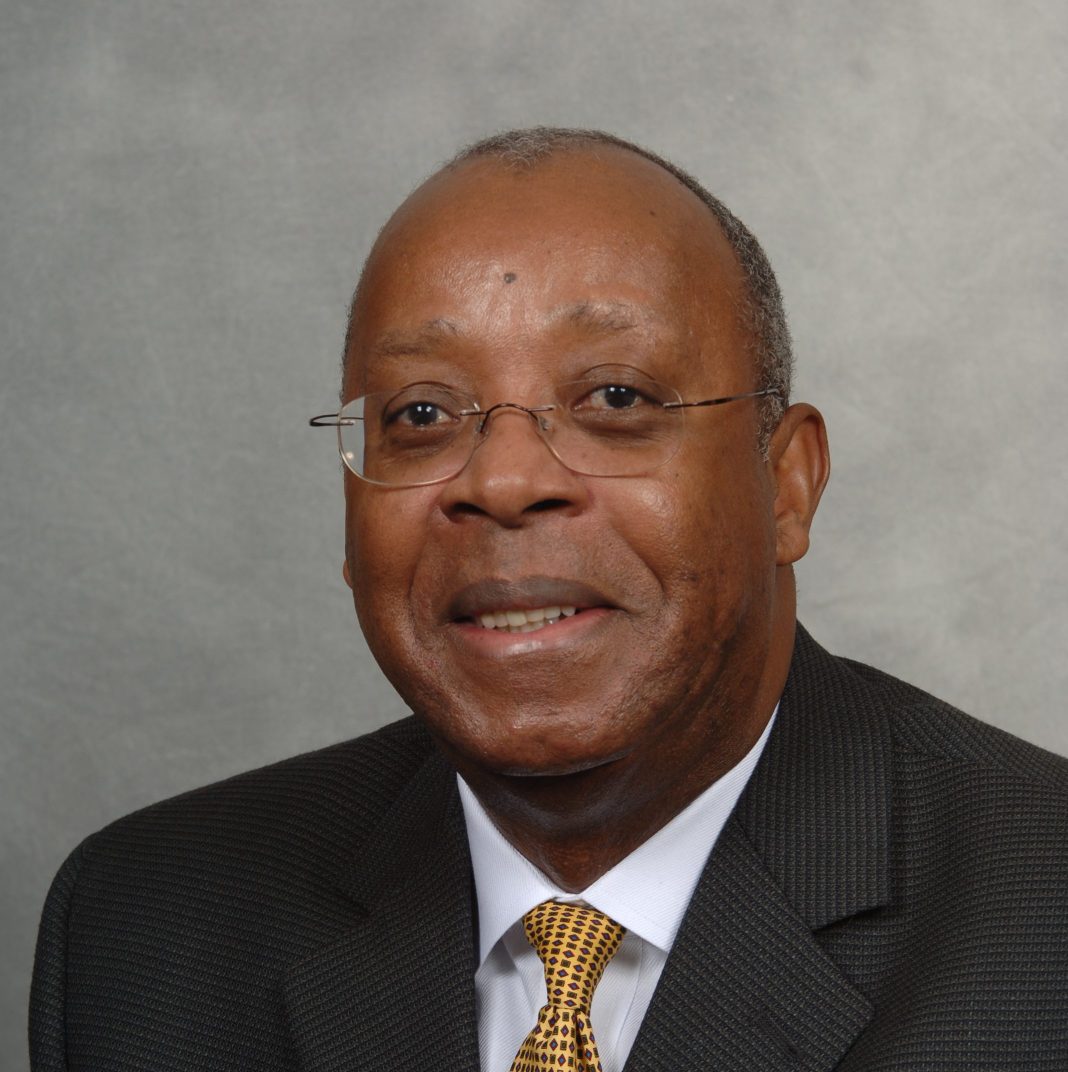 |
||
| 221 Bobby Dodd WayAtlanta, GA 30332-0225 | |||
| Homepage | http://www.hts.gatech.edu/people/faculty/pearson | ||
|---|---|---|---|
| Willie Pearson, Jr. is Professor of Sociology, School of History, Technology, and Society, Georgia Institute of Technology. Prior to joining the faculty at Georgia Tech as Chair, School of History, Technology and Society in July 2001, he held a distinguished appointment as Wake Forest Professor of Sociology at Wake Forest University and Adjunct in Medical Education at Wake Forest University School of Medicine. Dr. Pearson received his Ph.D. in sociology from Southern Illinois University at Carbondale in 1981. He has held postdoctoral fellowships at the Educational Testing Services (ETS) and the Office of Technology Assessment (OTA), Congress of the United States. In 1993, he received Southern Illinois University’s College of Liberal Arts’ Alumni Achievement Award. In 1999, Dr. Pearson was selected as one of Quality Education for Minorities in Mathematics, Science, and Engineering (QEM/MSE) Network’s Giants in Science. In 2001, he was elected a National Associate (life-time appointment) of the National Academy of Sciences. From 2001 to 2002, he served as a Sigma Xi Distinguished Lecturer. In 2005, Dr. Pearson was elected as an American Association for the Advancement of Sciences (AAAS) Fellow. In 2010, he was appointed by President Barack Obama to the Board of Advisors to the White House Initiative on Historically Black Colleges and Universities. | |||
| Areas of Interest |
|
||
David RudgeBiological Sciences Western Michigan University david.rudge (at) wmich.edu |
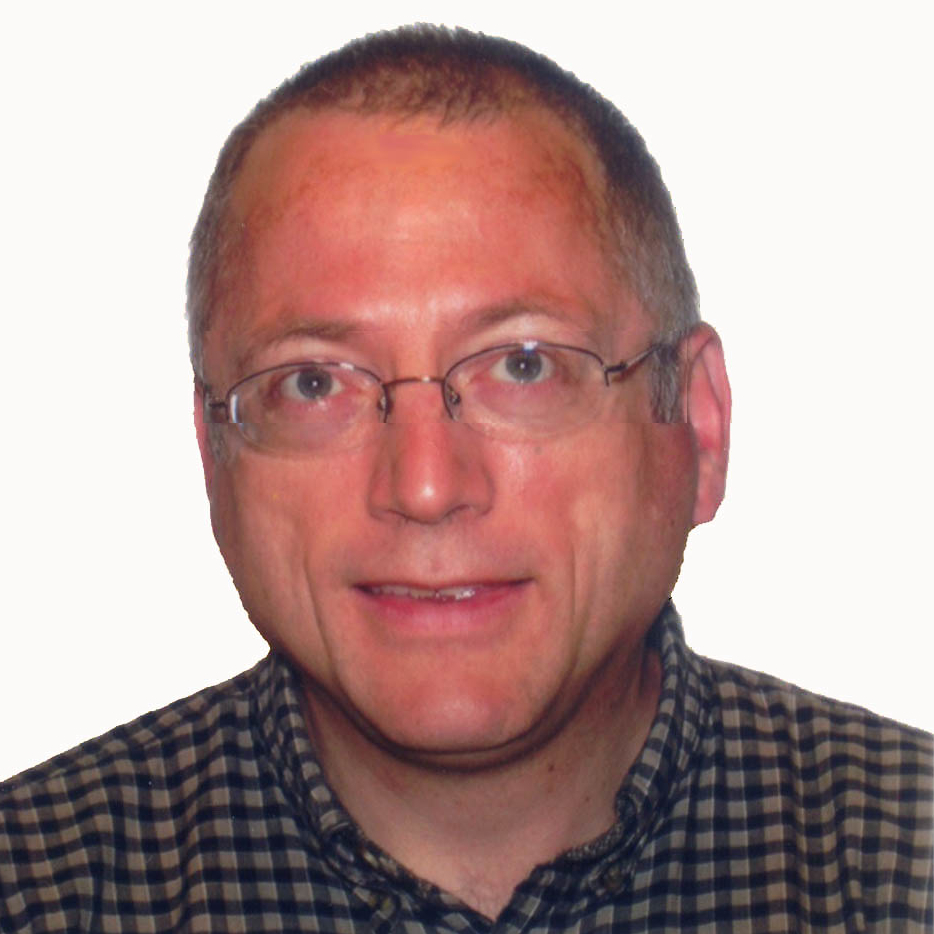 |
||
| 3134 Wood HallM.S. 5410Kalamazoo, Michigan 49008-5410 | |||
| Homepage | http://homepages.wmich.edu/~rudged | ||
|---|---|---|---|
| David W. Rudge, M.S. M.A. Ph.D. (HPS, University of Pittsburgh) is an associate professor in the Department of Biological Sciences and the Mallinson Institute for Science Education at Western Michigan University. He is currently past president of the International History, Philosophy and Science Teaching Group (IHPST). He has written extensively on how H.B.D. Kettlewell’s classic investigations on the phenomenon of industrial melanism can be used to promote the teaching and learning of and about science. | |||
| Papers | Assessing the Impact of a Historically Based Unit on Preservice Teachers Views on NOS | ||
| Areas of Interest |
|
||
Dimitri SeroglouAristotle University of Thessaloniki (at) |
|||
| Thessaloniki, Thessaloniki 54124Greece | |||
| Homepage | |||
|---|---|---|---|
| Areas of Interest |
|
||
Fanny SeroglouAristotle University of Thessaloniki seroglou (at) eled.auth.gr |
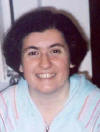 |
||
| School of Primary Education – Aristotle University of ThessalonikiUniversity Campus – Tower of EducationThessaloniki, Thessaloniki 54124Greece | |||
| Homepage | http://users.auth.gr/seroglou | ||
|---|---|---|---|
| Fanny Seroglou is an assistant professor in the School of Primary Education at the Faculty of Education in the Aristotle University of Thessaloniki, Greece. She holds a degree in physics, a PhD in science education concerning the contribution of history of science to instructional material design, and was a post-doc on teacher training in scientific literacy. Fanny has designed and has been teaching undergraduate and postgraduate level courses such as Science for Citizenship, Science and Culture in Education, and Science Education. Her research interests focus on: a) The contribution of history and philosophy of science in science education (awarded the Volta Medal from the IHPST group in 1999) b) Scientific literacy (scholarship from the Greek Scholarships Foundation in 2002 for postdoctoral research), c) Science for citizenship (designed and developed a teacher-training course and also published a book titled “Science for Citizenship” in greek in 2006), d) Science and culture in education (designed and developed a teacher-training course and an educational wiki supporting the course, held as Conference Chair the “Science and Culture” IHPST2011 conference and edited the “Science and Culture” Book of Proceedings in 2011) e) Website, web-based learning environment and instructional e-material design (the most recent sites are: http://atlaswiki.wetpaint.com, http://hipstwiki.eled.auth.gr) f) Science education research models (design and evaluation of research models such as the SHINE research model for the interaction between history of science and science education, the three-dimensional cognitive, meta-cognitive and emotional research model for recording the proposal for the use of history of science in science education, the GNOSIS research model for a nature-of-science approach to scientific literacy, the 3D-5I model for the combination of skills, attitudes and intelligences in science teaching and the ATLAS_WBLE model for the meeting of scientific literacy and digital literacy). Since 2003, Fanny is the head of the ATLAS research group (ATLAS is the acronym of A Teaching and Learning Approach for Science), and with her colleagues (nowadays the ATLAS group consists of more than 30 researchers and educators), they have participated in a series of international research projects concerning the use of history and philosophy of science in science education and the development of instructional e-material, multimedia and activities for the science classroom such as The MAP prOject, STeT, IPP, HIPST, that also led to the development of websites that the ATLAS research group has highly contributed such as http://atlas.eled.auth.gr, http://ppp.unipv.it/MAP, http://www.ucy.ac.cy/stet, http://hipstwiki.eled.auth.gr |
|||
| Papers | Pupils Produce their Own Narratives Inspired by the History of Science: Animation Movies Concerning the Geocentric–Heliocentric Debate | ||
| Areas of Interest |
|
||
Harvey SiegelDept. of Philosophy University of Miami hsiegel (at) miami.edu |
 |
||
| Dept. of PhilosophyP.O. Box 248054Coral Gables, FL 33124 | |||
| Homepage | http://www.as.miami.edu/phi/v1/siegel/index.htm | ||
|---|---|---|---|
| Professor of Philosophy, University of Miami. Areas: epistemology, philosophy of science, philosophy of education. | |||
| Areas of Interest |
|
||
Carol SmithDept of Psychology, UMass/Boston Carol.Smith (at) umb.edu |
|||
| Department of Psychology, University of Massachusetts/BostonBoston, MA 02125 | |||
| Homepage | |||
|---|---|---|---|
| Carol L. Smith is a Professor in the Department of Psychology, University of Massachusetts at Boston, where she has been since receiving her Ph.D. in developmental studies from Harvard University in 1976 and completing postdoctoral research at M.I.T in 1978. She is a cognitive developmental psychologist whose work on conceptual change in science education exemplifies part of the research basis for learning progressions. Over the past 30 years she has studied the conceptual changes that occur as children develop their ideas about matter as well as their ideas about scientific models and knowledge construction in science. She has collaborated with teachers, scientists, and science educators to create innovative teaching units for elementary and middle school students and to study their effectiveness in facilitating conceptual restructuring compared with more traditional teaching approaches. She has also collaborated with her colleague Arthur Millman in the UMB Philosophy Department in doing a case study of the reasoning processes used by Darwin in the development of his theory of natural selection, based on an analysis of his scientific notebooks. More recently, she worked on a team that synthesized current research in order to propose a long-term learning progression for matter (Smith, Wiser, Anderson, & Krajcik, 2006) and served on the National Research Council’s Committee on Science Learning, K-8, which authored Taking Science to School (2007). She is currently collaborating on two longitudinal studies—one with elementary school students (on matter) and the other with college students (concerning their conceptions of science). | |||
| Areas of Interest |
|
||
Mildred SolomonThe Hastings Center solomonm (at) thehastingscenter.org |
 |
||
| 21 Malcolm Gordon RoadGarrison, NY 10524-4125 | |||
| Homepage | http://www.thehastingscenter.org/About/Staff/Detail.aspx?id=5887 | ||
|---|---|---|---|
| Mildred Solomon, EdD is President and CEO of The Hastings Center, a world renowned bioethics research and policy institute which analyzes ethical issues in medicine, health care, the life sciences and the environment. Dr. Solomon is also Clinical Professor of Anaesthesia at Harvard Medical School, where she directs the Department of Global Health and Social Medicine’s Fellowship in Medical Ethics, which aims to build the bioethics infrastructure of Harvard-affiliated hospitals and other health care systems. Professor Solomon conducts both normative and empirical research in bioethics; her scholarly work has focused primarily on the ethics of end-of-life care, organ transplantation and research ethics. She is also an accomplished ethics educator; for example, more than 12,000 secondary science teachers have ordered copies of a program she and her team developed for the NIH on ethical issues in the life sciences. She also co-founded The Decisions Near the End of Life program, which reached 40,000 health care providers with interactive cases and a dedicated curriculum, which was used in more than 230 hospitals across the country; and she conceptualized and led a similar effort focused on the care of gravely ill children, entitled The Initiative for Pediatric Palliative Care (www.ippcweb.org). Before assuming the leadership of The Hastings Center, Professor Solomon was Senior Director for Implementation Science at the Association of American Medical Colleges (AAMC), a membership association of all the medical schools in the United States and Canada, over 400 teaching hospitals and 90 medical and scientific societies. She is a frequent consultant to foundations, has advised the Institute of Medicine and National Academies of Science, and speaks both to academic and public audiences on a range of issues in bioethics, health care policy, and bioethics education. She received her B.A. from Smith College and her doctorate in educational research methods and adult learning from Harvard University. | |||
| Papers | Exploring Bioethics: NIH Curriculum Supplement for 9–12 | ||
| Areas of Interest |
|
||
John StachelBoston University john.stachel (at) gmail.com |
|||
| Center for Einstein Studies, Boston University745 Commonwealth AvenueBoston, Massachusetts 02215 | |||
| Homepage | |||
|---|---|---|---|
| Visse scrisse amo (with apologies to Stendhal) | |||
| Areas of Interest |
|
||
Sevan TerzianUniversity of Florida sterzian (at) coe.ufl.edu |
|||
| 2415 NW 38th St.Gainesville, Florida 32605 | |||
| Homepage | http://education.ufl.edu/faculty/terzian-sevan/ | ||
|---|---|---|---|
| Sevan Terzian is an associate professor of social foundations of education and associate director for graduate studies in the School of Teaching & Learning. He teaches graduate and undergraduate courses on the history of American education and the philosophical foundations of education. Professor Terzian’s scholarship has focused on the history of the American high school; the history of science, gender, and education in the postwar era; and conflicts among different governing bodies in education in the latter half of the twentieth century. He has recently completed a book, Science Education and Citizenship: Fairs, Clubs, and Talent Searches for American Youth, 1918-1958, which will be published by Palgrave Macmillan in January 2013. | |||
| Papers | 1939–1940 New York World’s Fair and the Transformation of the American Science Extracurriculum | ||
| Areas of Interest |
|
||
Karen WellnerCenter for Biology and Society Arizona State University karen.wellner (at) asu.edu |
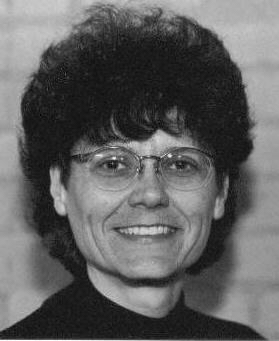 |
||
| Life Science LSC 284P.O. Box 873301Tempe, Arizona 85287-3301 | |||
| Homepage | https://cbs.asu.edu/people/wellner | ||
|---|---|---|---|
| Karen Wellner (PhD Science Education, University of Iowa) is a research associate in the Center for Biology and Society at Arizona State University. A former middle school science teacher she now divides her time working with Jane Maienschein on the Embryo Project, an online Open Access (OA) repository dedicated to the history, practices, and social contexts of embryo research, and teaching undergraduate microbiology and anatomy/physiology classes.Karen’s interests lie in methodologies designed to bridge the gap between realscience and school science. Other research interests include the cognitive development of spatial ability and the use of oral histories to give context to scientific discoveries. | |||
| Papers | Competing Views of Embryos for the Twenty-First Century: Textbooks and SocietyPolio and Historical Inquiry | ||
| Areas of Interest |
|
||
Chuck WinrichBabson College cwinrich (at) babson.edu |
|||
| Kriebel 203Babson CollegeBabson Park, MA 02457-0310 | |||
| Homepage | |||
|---|---|---|---|
| Chuck Winrich is the Director of Natural Sciences at Babson College. He received his bachelor’s degree in Physics from the University of Wisconsin-Eau Claire, a master’s degree in Astrophysics from Iowa State University, and recently defended his dissertation in Boston University’s School of Education. His research interests include the intersection of history and philosophy of science and science education: the use and perceived value of HPS by teachers, and the impact of HPS informed instruction on student understanding. | |||
| Papers | Teaching Teachers the Conceptual History of Physics | ||
| Areas of Interest |
|
||
Tyler Wooley-BrownBrookline High School misterwooleybrown (at) gmail.com |
 |
||
| , MA | |||
| Homepage | |||
|---|---|---|---|
| Tyler Wooley-Brown is a high school physics teacher at Brookline High School in Brookline, MA. He has taught introductory Physics First (freshmen level physics) for five years and will transition to teaching AP Physics C next year. He earned his M.Ed from the School of Education at Boston University in Physics Education this summer and continues to work with the BU-Physics Teachers Network. He has a B.S. from Purdue University in both Physics Education and Mathematics Education and also completed graduate work at Purdue in Gifted and Talented education. In his spare time he plays bass in a local Boston rock band. | |||
| Areas of Interest |
|
||
Note: The naming convention for files may not reflect the primary author of a paper. The listed name(s) are those of the author(s) attending the conference.

